This article was co-authored by Andrea Rudominer, MD, MPH and by wikiHow staff writer, Hannah Madden. Dr. Andrea Rudominer is a board certified Pediatrician and Integrative Medicine Doctor based in the San Francisco Bay Area. Dr. Rudominer has over 15 years of medical care experience and specializes in preventive health care, obesity, adolescent care, ADHD, and culturally competent care. Dr. Rudominer received her MD from the University of California, Davis, and completed a residency at the Lucile Packard Children's Hospital at Stanford University. Dr. Rudominer also has an MPH in Maternal Child Health from the University of California, Berkeley. She is a Member of the American Board of Pediatrics, a Fellow of the American Academy of Pediatrics, a Member and Delegate of the California Medical Association, and a Member of the Santa Clara County Medical Association.
There are 16 references cited in this article, which can be found at the bottom of the page.
wikiHow marks an article as reader-approved once it receives enough positive feedback. In this case, several readers have written to tell us that this article was helpful to them, earning it our reader-approved status.
This article has been viewed 731,761 times.
Cold sores are painful blister-like sores that commonly appear around the mouth and are caused by the herpes simplex virus 1 (HSV-1). You might experience pain around your mouth area, a fever, sore throat, swollen glands, and cold sores (also known as fever blisters).[1] Cold sores usually go away on their own after a week or two, but there are methods you can employ to get rid of them more quickly.
Steps
Using Over-the-Counter Treatments
-
1Use an over-the-counter ointment. Covering the cold sore to protect it from sun and other irritants can help it go away faster. Ointments like Orajel[2] and Carmex[3] are designed to protect the sore and help it to heal.
- For best results, reapply the ointment often (about 5 times per day), so the sore and the skin around it don't have time to dry up.
-
2Use plain petroleum jelly. Petroleum jelly, when applied over the cold sore, will provide a protective barrier so your cold sore is not exposed to the elements. For best results, reapply the ointment often, so the sore and the skin around it don't have time to dry up.Advertisement
-
3Use a drying ointment. Use a product that dries out the cold sore, such as rubbing alcohol (70%) or Blistex, may help make the cold sore heal more quickly.[4] Apply rubbing alcohol by pouring a small amount on a cotton ball and dabbing it on the cold sore.
-
4Use sunscreen. Sun exposure is tough on anyone's skin, and its especially damaging to people who tend to get cold sores.[5] Protect your skin by wearing sunscreen at all times of the year, not just during the summer. Use lip balm or lipstick with sunscreen so that your lips are protected, too.
- Use a skin protectant such as lip balm that contains zinc oxide to protect your cold sore.
-
5Try a styptic pencil. A styptic pencil is made of mineral astringents that can stop nicks and cuts from bleeding (such as those from shaving). They can also help reduce the redness and appearance of cold sores. Moisten the tip of the styptic pencil and press it gently onto the cold sore area. Repeat several times a day while the cold sore is visible.[6]
-
6Try eye drops. Eye drops that are intended to remove redness from eyes, such as Visine, can also be applied to cold sores to reduce redness. Put 1-2 drops on your cold sore.
Visiting the Doctor
-
1Know your cold sore history. Visit your doctor to get more powerful treatments for your cold sores. If you have cold sores that recur frequently, visit your doctor to see what your treatment options are. The doctor may ask you a series of questions in order to diagnose the severity of your case, such as:
- When did you first notice the current cold sore?
- How painful is the cold sore?
- When did you first get cold sores?
- How frequently do you get cold sores?
-
2Mention other medications you're taking. Some medications are thought to contribute to cold sore outbreaks. Ask your doctor if these might be contributing to your current cold sore outbreak.[7] Medications that are in question include:
- Depo-Provera birth control
- Steroid-based medications
- Nasal sprays such as Fluticasone and Nasonex
- Flu shots or vaccinations (rarely)
- Medications that weaken your immune system
-
3Ask for a prescription anti-viral cream. Prescription anti-viral creams containing penciclovir and acyclovir are highly effective treatments for cold sores.[8] These are creams that you will apply directly to the cold sore.
- Apply the cream as soon as you feel the cold sore coming on. If you catch it early enough, the cream might prevent it from becoming a blister.
- The cream can be applied to open sores, too. They should go away within a day or two after application.
-
4Get a prescription for an oral medication. Acyclovir (Zovirax) or valacyclovir (Valtrex), both anti-viral medications, are available in pill form. These can help clear up cold sores more quickly and may also prevent future outbreaks.[9] These medications can reduce symptoms considerably if taken within the first day or two after you first notice the cold sore or accompanying symptoms.[10]
-
5Get a cortisone injection. A cortisone injection is a steroid injection that is injected at the site of your cold sore. It will cause the site to swell but then the cold sore should disappear within a few hours. Visit your doctor to get an injection of diluted cortisone to quickly get rid of the cold sore.[11]
- This can be painful, as the cortisone shot is injected into the cold sore itself. It may also be costly. Check with your health insurance provider to see if this procedure is covered by your insurance.
Using Natural Remedies
-
1Apply some ice. Take an ice cube and hold it up to the sore for a few minutes at a time two or three times a day. The ice eases the pain of the sore and helps reduce inflammation.
-
2Use tea tree oil. A drop or two of this powerful natural oil can help your sore go away within a day or two. Use it the same way you'd use any ointment or salve, applying it a few times a day. You can also combine it with petroleum jelly to make the application last longer.[12]
-
3Try a dab of vanilla extract. Using a few drops of real (not artificial) vanilla extract each day is said to help heal cold sores. Pour a small amount of vanilla extract on a cotton ball and press it gently to your cold sore for about a minute. Repeat 4 times a day.[13]
-
4Place a tea bag on the cold sore. Green tea contains nutrients and antioxidants that can soothe cold sores and help quicken the pace of healing. Steep a green tea bag in hot water for a few minutes and allow it to cool. Apply the tea bag directly to your cold sore. Leave it for 5-10 minutes.[14]
-
5Take lysine tablets. Lysine is an amino acid and is often used to reduce the length of a cold sore outbreak. Lysine can be purchased at drug stores and grocery stores for approximately $5-$7 per 100 tablets. Take 1-3 grams per day of lysine.
- You can also increase your intake of lysine through certain foods, such as fish, chicken, eggs and potatoes.
- Check with your doctor if you have high cholesterol or heart disease. Taking lysine may raise your cholesterol and triglyceride levels.
-
6Try other natural remedies. There are a range of remedies derived from naturally-occurring ingredients that you can try. Search online for “natural remedies for cold sores” to find additional remedies, such as Echinacea, aloe, licorice, peppermint and others.[15]
Easing Discomfort
-
1Apply a warm or cold compress. Sometimes cold sores can become extremely painful, even leading to headaches and other related pains. Hold a hot water bottle or a bag of ice wrapped in a towel up to your lip for 20 minutes. The warm or cool temperature will help ease the pain.
-
2Use a topical anesthetic. Creams and ointments containing benzocaine or lidocaine provide temporary pain relief. They're commonly packaged as anti-itch creams and are available in drug stores.[16]
-
3Take a pain reliever. Nonsteroidal anti-inflammatory drugs (NSAIDs) such as aspirin and ibuprofen can reduce pain around your mouth and help relieve associated headaches. Follow the instructions on the bottle for proper dosage.
Stopping the Spread of Cold Sores
-
1Wash your hands frequently. Touching your sore with unwashed hands can lead to a bacterial infection, and you could also spread the sores to another area of your body. Use warm, soapy water to wash your hands often throughout the day.
-
2Avoid skin-to-skin contact. When you have a cold sore outbreak, you are highly contagious and the virus can be easily spread to another person. Avoid kissing or having your cold sore come in contact with someone else.
- Similarly, avoid oral sexual activity during an outbreak. This can risk transmitting the virus and infecting the other person with genital herpes.
-
3Avoid sharing certain items. Do not share drinking glasses, straws, toothbrushes, razors, towels, or other items that have come in contact with someone with cold sores. Similarly, do not share these items with someone else if you have cold sores.[17]
- Throw away your toothbrush when you have a cold sore outbreak. You can risk continuing the virus if you keep exposing yourself to it through your toothbrush.[18]
Making Lifestyle Changes
-
1Avoid foods that cause outbreaks. Many people are sensitive to certain foods that cause cold sores to appear when they are eaten in excess. If you tend to get cold sores easily, limit or stop eating the following foods:
- Acidic foods, like tomatoes and citrus fruits. Avoid both raw tomatoes and foods containing tomato-based sauces, and stop drinking tomato, orange and grapefruit juice. [19]
- Salty foods, like canned soups, fried foods, and snack foods. Excess salt can trigger a cold sore outbreak.
-
2Eat nutrient-rich foods. Be sure to get plenty of vitamins and nutrients by eating fruits and vegetables. Eat balanced meals, making sure you eat a lot of leafy greens and other nutrient-rich foods. Take a multivitamin if you're concerned you aren't getting enough nutrients.
-
3Reduce your stress. Cold sore outbreaks are more common during periods of stress.[20] You might notice an outbreak around the holidays, or during a particularly stressful time at work. Reduce your chances of getting an outbreak by taking care of yourself during stressful times.
-
4Get plenty of sleep. Getting enough sleep every night will ensure that your body is rested. Get at least 7 to 8 hours of sleep every night. If you are having trouble falling asleep, try soothing music or 10 minutes of meditation before going to bed to ensure that your body knows that it's time to sleep.[21]
-
5Stay hydrated. Drink lots of water every day to ensure that your body is hydrated. This will not only keep your body healthy, but it can also ward off illnesses that can contribute to a cold sore outbreak.
-
6Keep your immune system strong. Cold sore outbreaks tend to occur when your immune system has been compromised.[22] You might see them when you've got a cold or have been under the weather for another reason. Keep your immune system healthy by getting lots of sleep, drinking lots of water, and eating foods rich in vitamins and other nutrients.
- Take precautions against getting the flu or a cold. Wash your hands frequently during flu and cold season. Consider getting a flu shot if you're prone to cold sore outbreaks.
Expert Q&A
-
QuestionWhat home remedy can I use for a cold sore?
 Andrea Rudominer, MD, MPHDr. Andrea Rudominer is a board certified Pediatrician and Integrative Medicine Doctor based in the San Francisco Bay Area. Dr. Rudominer has over 15 years of medical care experience and specializes in preventive health care, obesity, adolescent care, ADHD, and culturally competent care. Dr. Rudominer received her MD from the University of California, Davis, and completed a residency at the Lucile Packard Children's Hospital at Stanford University. Dr. Rudominer also has an MPH in Maternal Child Health from the University of California, Berkeley. She is a Member of the American Board of Pediatrics, a Fellow of the American Academy of Pediatrics, a Member and Delegate of the California Medical Association, and a Member of the Santa Clara County Medical Association.
Andrea Rudominer, MD, MPHDr. Andrea Rudominer is a board certified Pediatrician and Integrative Medicine Doctor based in the San Francisco Bay Area. Dr. Rudominer has over 15 years of medical care experience and specializes in preventive health care, obesity, adolescent care, ADHD, and culturally competent care. Dr. Rudominer received her MD from the University of California, Davis, and completed a residency at the Lucile Packard Children's Hospital at Stanford University. Dr. Rudominer also has an MPH in Maternal Child Health from the University of California, Berkeley. She is a Member of the American Board of Pediatrics, a Fellow of the American Academy of Pediatrics, a Member and Delegate of the California Medical Association, and a Member of the Santa Clara County Medical Association.
Board Certified Pediatrician & Integrative Medicine Doctor You can try applying diluted tea tree or eucalyptus oil onto the cold sore.
You can try applying diluted tea tree or eucalyptus oil onto the cold sore.
Warnings
- Although rarely, cold sores can impact the eyes and put you at risk for blindness. If you have cold sores or blisters near your eyes, see your physician right away.⧼thumbs_response⧽
References
- ↑ http://www.therabreath.com/canker-sore-vs-cold-sore.html
- ↑ https://hartfordhospital.org/health-wellness/health-resources/health-library/detail?id=hw31977
- ↑ https://dailymed.nlm.nih.gov/dailymed/lookup.cfm?setid=6d91a6e1-02b6-45da-8ef2-b8a8aa23d31a
- ↑ http://www.uhs.umich.edu/coldcankersores
- ↑ http://www.webmd.com/skin-problems-and-treatments/tc/cold-sores-topic-overview?page=2
- ↑ http://www.uhs.umich.edu/coldcankersores
- ↑ https://www.herpes-coldsores.com/treatment/herpes-treatments/
- ↑ http://www.huffingtonpost.com/thomas-p-connelly-dds/cold-sores-how-to-treat-get-rid-of_b_848207.html
- ↑ http://www.mayoclinic.com/health/cold-sore/DS00358/DSECTION=treatments-and-drugs
- ↑ http://www.uhs.umich.edu/coldcankersores
- ↑ http://www.huffingtonpost.com/2013/05/02/cold-sore-treatment-tips_n_3195566.html
- ↑ http://www.webmd.com/vitamins-supplements/ingredientmono-113-TEA%20TREE%20OIL.aspx?activeIngredientId=113&activeIngredientName=TEA%20TREE%20OIL
- ↑ http://everydayroots.com/cold-sore-remedies
- ↑ http://homeremediesforlife.com/cold-sore/
- ↑ http://homeremediesforlife.com/cold-sore/
- ↑ http://health.cvs.com/GetContent.aspx?token=f75979d3-9c7c-4b16-af56-3e122a3f19e3&chunkiid=19300#anesthetic
- ↑ http://www.webmd.com/skin-problems-and-treatments/tc/cold-sores-topic-overview?page=2
- ↑ http://homeremediesforlife.com/cold-sore/
- ↑ https://victoriadentalcentre.com/blog/foods-to-avoid-during-a-cold-sore-break
- ↑ http://www.webmd.com/skin-problems-and-treatments/tc/cold-sores-topic-overview?page=2
- ↑ http://healthfinder.gov/HealthTopics/Category/everyday-healthy-living/mental-health-and-relationship/get-enough-sleep
- ↑ http://www.webmd.com/skin-problems-and-treatments/tc/cold-sores-topic-overview?page=2M
About This Article
The easiest way to get rid of a cold sore is to dab some petroleum jelly on it, reapplying frequently. If that doesn't work, try putting a small amount of rubbing alcohol on a cotton ball and dabbing it on. Interested in natural remedies? Try a drop or two of tea tree oil or real vanilla extract a few times a day. Still no success? You can apply an over-the-counter ointment, like Orajel or Carmex, five times a day. If what you’re doing at home isn’t working, head to your doctor’s office to ask about more powerful treatments. If you want to learn how to ease any discomfort from your cold sore, keep reading the article!
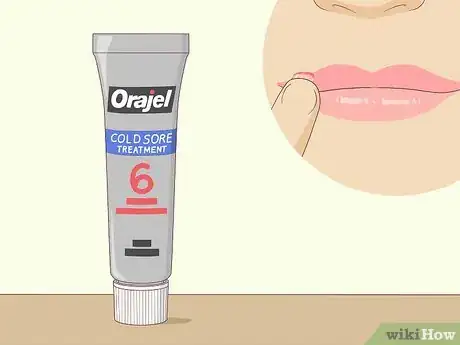
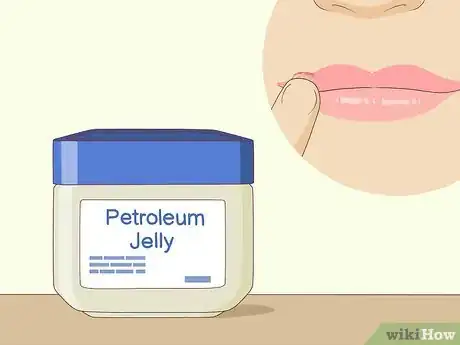
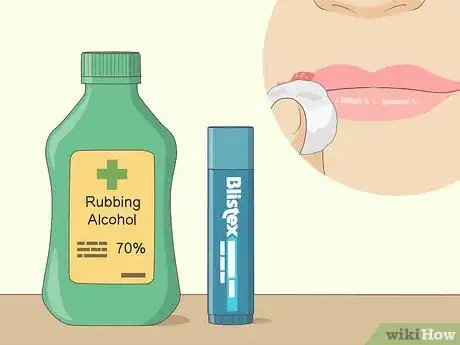
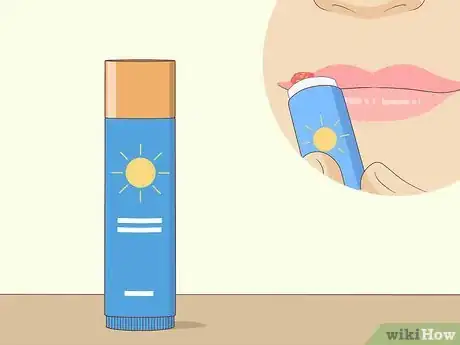
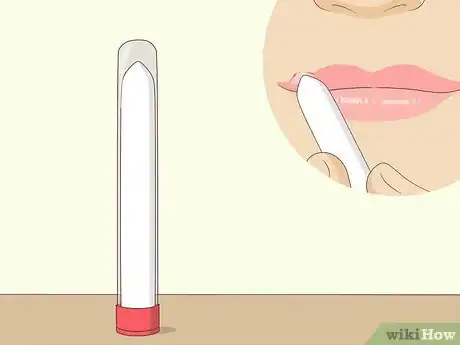
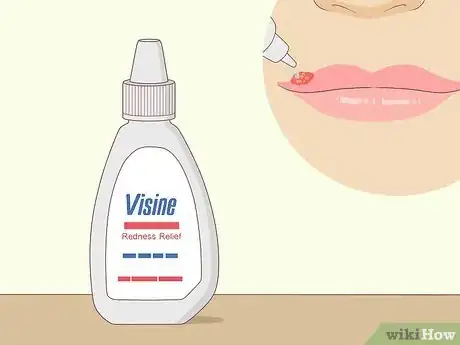
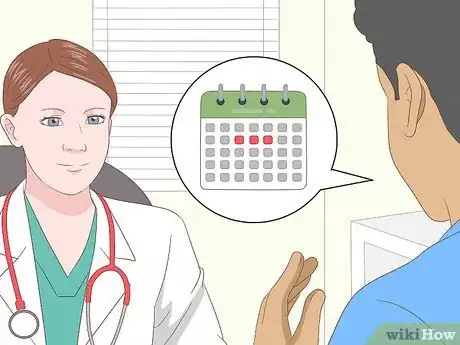
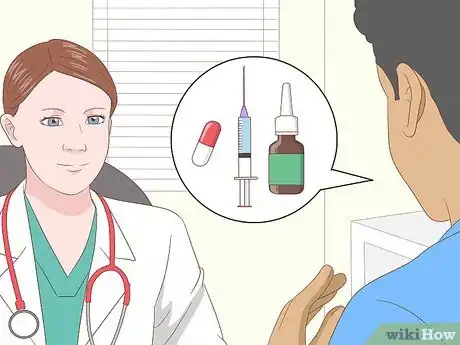
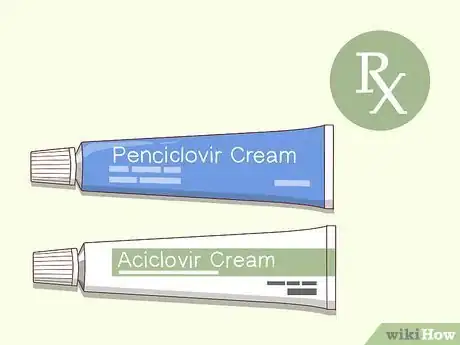
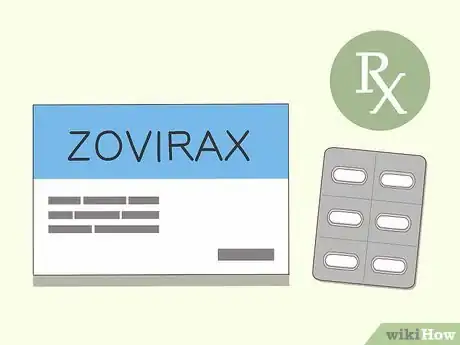
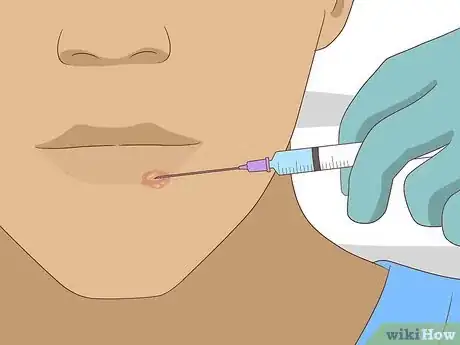
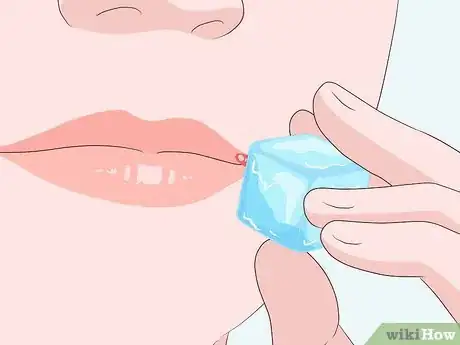
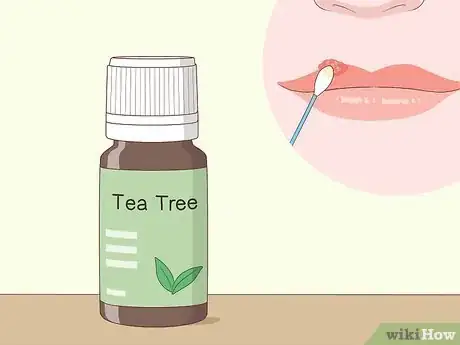
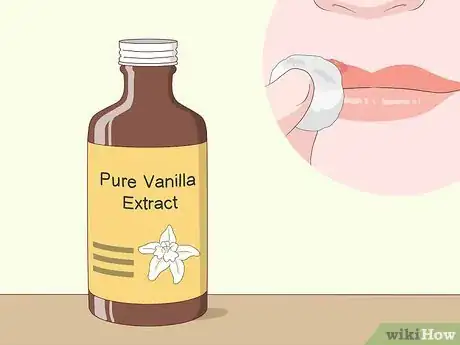
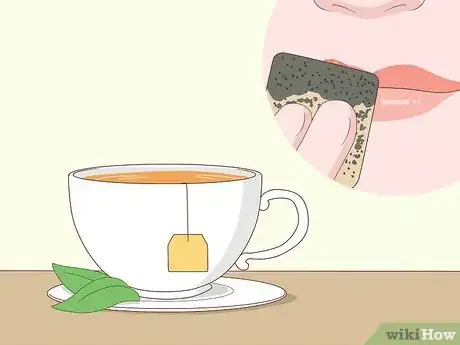
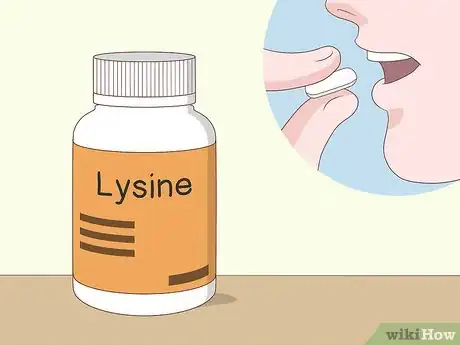
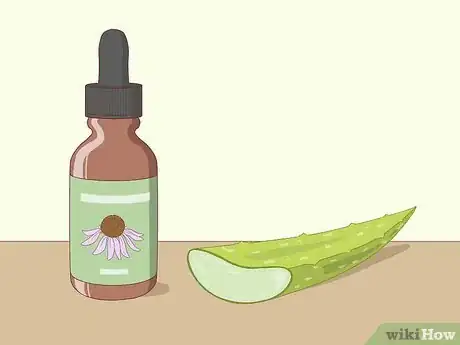
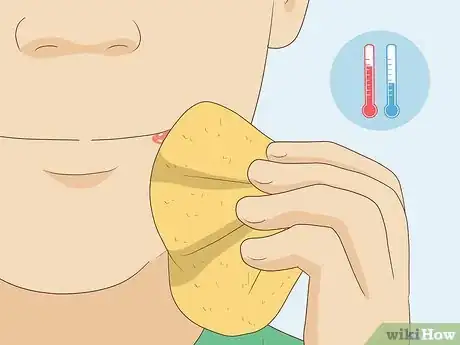
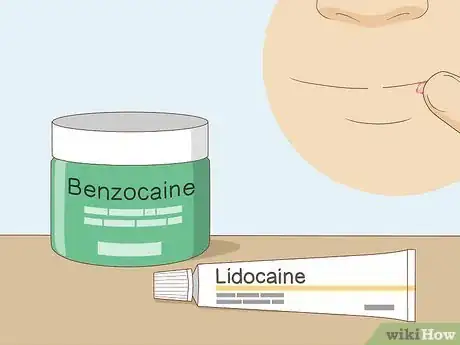
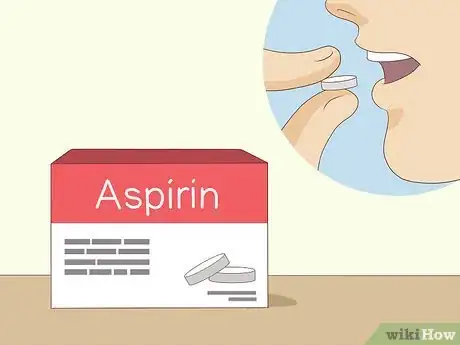
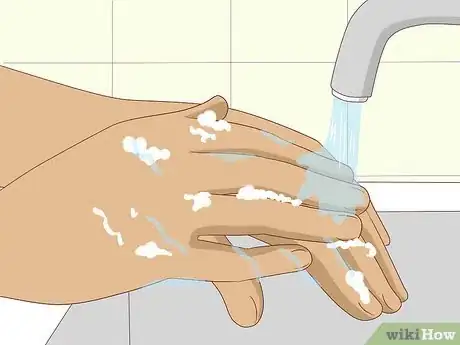

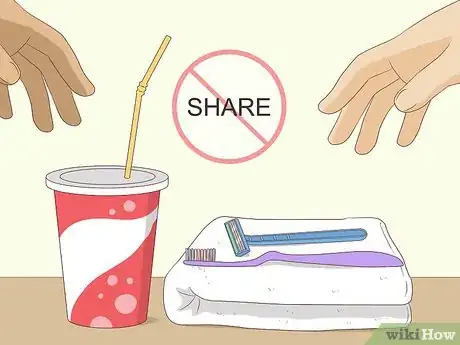
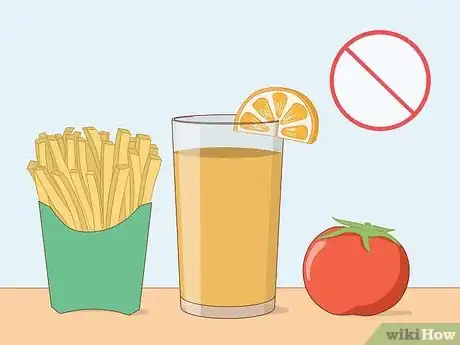

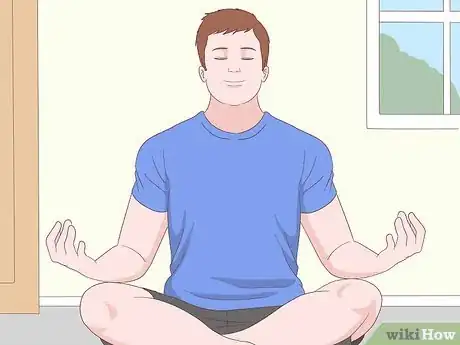

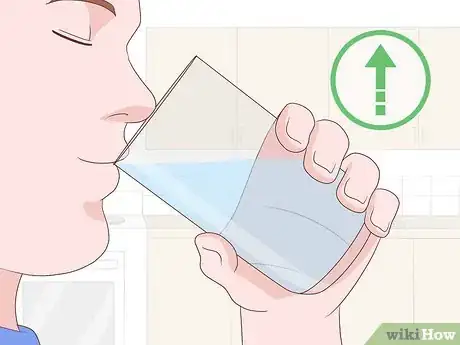
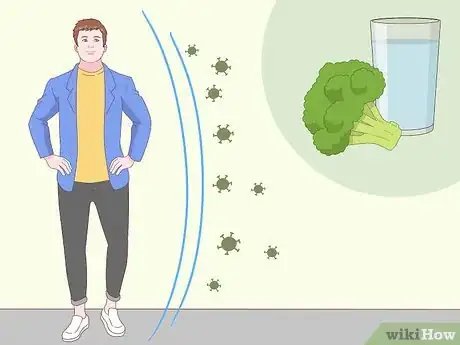
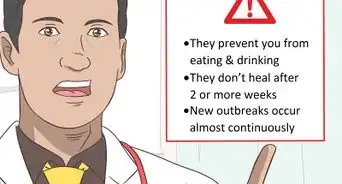
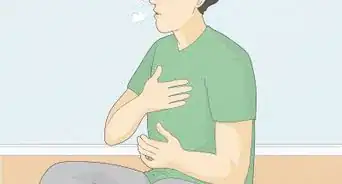
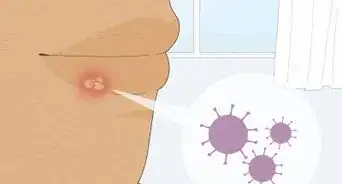




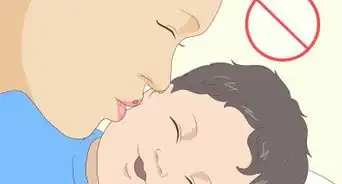

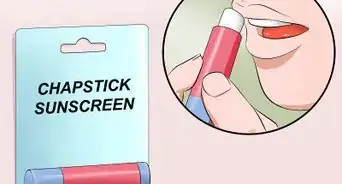
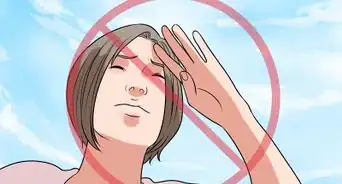
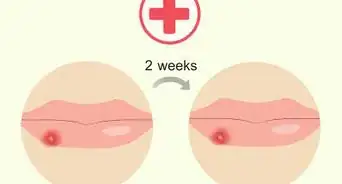










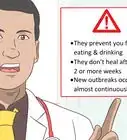

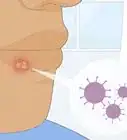
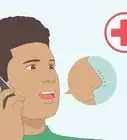



































Medical Disclaimer
The content of this article is not intended to be a substitute for professional medical advice, examination, diagnosis, or treatment. You should always contact your doctor or other qualified healthcare professional before starting, changing, or stopping any kind of health treatment.
Read More...